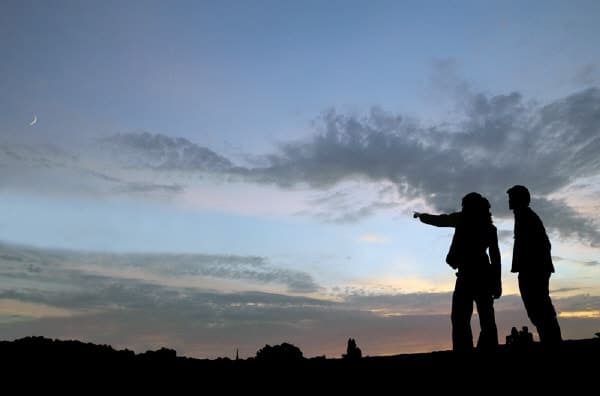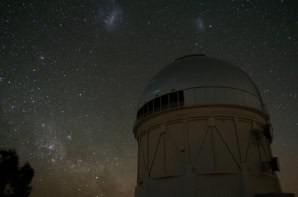One of the UK's leading research labs and the Muslim Council of Britain have launched a project to improve our knowledge of the lunar calendar as part of Einstein Year. The Moon Watch project encourages the general public - especially amateur astronomers and the Islamic community - to record when they see the new crescent moon and enter the details on a web site. The exercise should help create more accurate lunar records, which could benefit religions that use the lunar calendar to set important dates.

Moon Watch is being launched to coincide with Ramadan, the Muslim month of fasting, which is expected to start on 4 or 5 October. The Council for the Central Laboratory of the Research Councils (CCLRC) is asking people to look for the new crescent moon immediately after sunset in the western sky on the first three days after the new moon. This will fall between 4 to 6 October, 3 to 5 November and 2 to 4 December.
Participants can look at the moon using the naked eye, binoculars or a telescope and can then submit their results to a special website (see “Crescent Moon Watch” in related links). These data will be analysed by staff at the HM Nautical Almanac Office (HMNAO), who will use the results to refine existing astronomical models. The project is planned to run for several years, with the first results being released in December 2005.
“This is a great opportunity to get the public to help us answer the age-old question of when the new crescent moon can be seen,” says Steven Bell, who is scientific editor for the HMNAO at the CCLRC’s Rutherford Appleton Laboratory near Oxford. “Current methods for predicting the new crescent moon are based on data in an American study. We want to gather observations worldwide and particularly from Northern Europe to test the validity of our predictions and improve our global models.”
In addition to helping Muslims set the date for Ramadan each year, the project will also help other religions – including the Christian, Jewish and Hindu faiths – that base important festivals on the lunar calendar.



